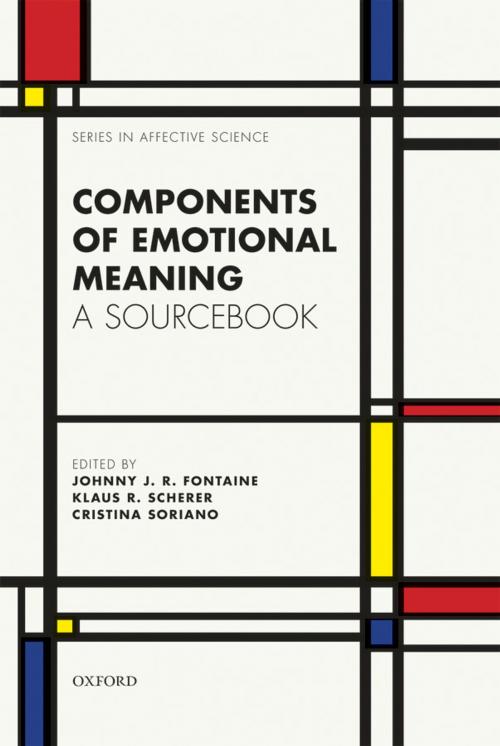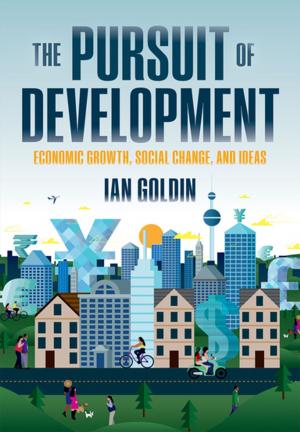Components of emotional meaning
A sourcebook
Nonfiction, Health & Well Being, Psychology, Developmental Psychology, Reference & Language, Language Arts| Author: | ISBN: | 9780191504785 | |
| Publisher: | OUP Oxford | Publication: | August 1, 2013 |
| Imprint: | OUP Oxford | Language: | English |
| Author: | |
| ISBN: | 9780191504785 |
| Publisher: | OUP Oxford |
| Publication: | August 1, 2013 |
| Imprint: | OUP Oxford |
| Language: | English |
Publications on emotion (and the affective sciences in general) have exploded in the last decade. Numerous research teams and individual scholars from many different disciplines have published research papers or books about many different aspects of emotions and their role in behaviour and society. However, One aspect of emotional research that has been somewhat neglected, is the way in which emotional terms translate into other languages. When using terms like anger, sadness, fear, disgust, and joy for so-called basic emotions, as well as terms like shame, guilt, pride, regret and contempt for more complex emotions, it is naturally assumed that the emotion terms used for research in the native language of the researchers and translated into English are completely equivalent in meaning. However, this is not generally the case. In many cases there is no direct one to one relationship between an English term and a term in an alternative language. In fact, there can be significant differences in the way that these seemingly similar emotional terms can be applied across various languages, with important implications for how we review and appraise this work. This book presents an extensive cross-cultural and cross-linguistic review of the meaning of emotion words, adopting a novel methodological approach. Based on the Component Process Model, the authors developed a new instrument to assess the meaning of emotion terms. This instrument, the GRID questionnaire, consists of a grid of 24 emotion terms spanning the emotion domain and 142 emotion features that operationalize five emotion components (Appraisals, Bodily reactions, Expressions, Action tendencies, and Feelings). For the operationalization of these five emotion components, very different emotion models from the Western and the cultural-comparative emotion literature were taken into account. 'Components of Emotional Meaning' includes contributions from psychological, cultural-comparative, and linguistic perspectives demonstrating how this new instrument can be used to empirically study very different research questions on the meaning of emotion terms. The implications of the results for major theoretical debates on emotion are also discussed. For all researchers in the affective sciences, this book is an important new reference work.
Publications on emotion (and the affective sciences in general) have exploded in the last decade. Numerous research teams and individual scholars from many different disciplines have published research papers or books about many different aspects of emotions and their role in behaviour and society. However, One aspect of emotional research that has been somewhat neglected, is the way in which emotional terms translate into other languages. When using terms like anger, sadness, fear, disgust, and joy for so-called basic emotions, as well as terms like shame, guilt, pride, regret and contempt for more complex emotions, it is naturally assumed that the emotion terms used for research in the native language of the researchers and translated into English are completely equivalent in meaning. However, this is not generally the case. In many cases there is no direct one to one relationship between an English term and a term in an alternative language. In fact, there can be significant differences in the way that these seemingly similar emotional terms can be applied across various languages, with important implications for how we review and appraise this work. This book presents an extensive cross-cultural and cross-linguistic review of the meaning of emotion words, adopting a novel methodological approach. Based on the Component Process Model, the authors developed a new instrument to assess the meaning of emotion terms. This instrument, the GRID questionnaire, consists of a grid of 24 emotion terms spanning the emotion domain and 142 emotion features that operationalize five emotion components (Appraisals, Bodily reactions, Expressions, Action tendencies, and Feelings). For the operationalization of these five emotion components, very different emotion models from the Western and the cultural-comparative emotion literature were taken into account. 'Components of Emotional Meaning' includes contributions from psychological, cultural-comparative, and linguistic perspectives demonstrating how this new instrument can be used to empirically study very different research questions on the meaning of emotion terms. The implications of the results for major theoretical debates on emotion are also discussed. For all researchers in the affective sciences, this book is an important new reference work.















